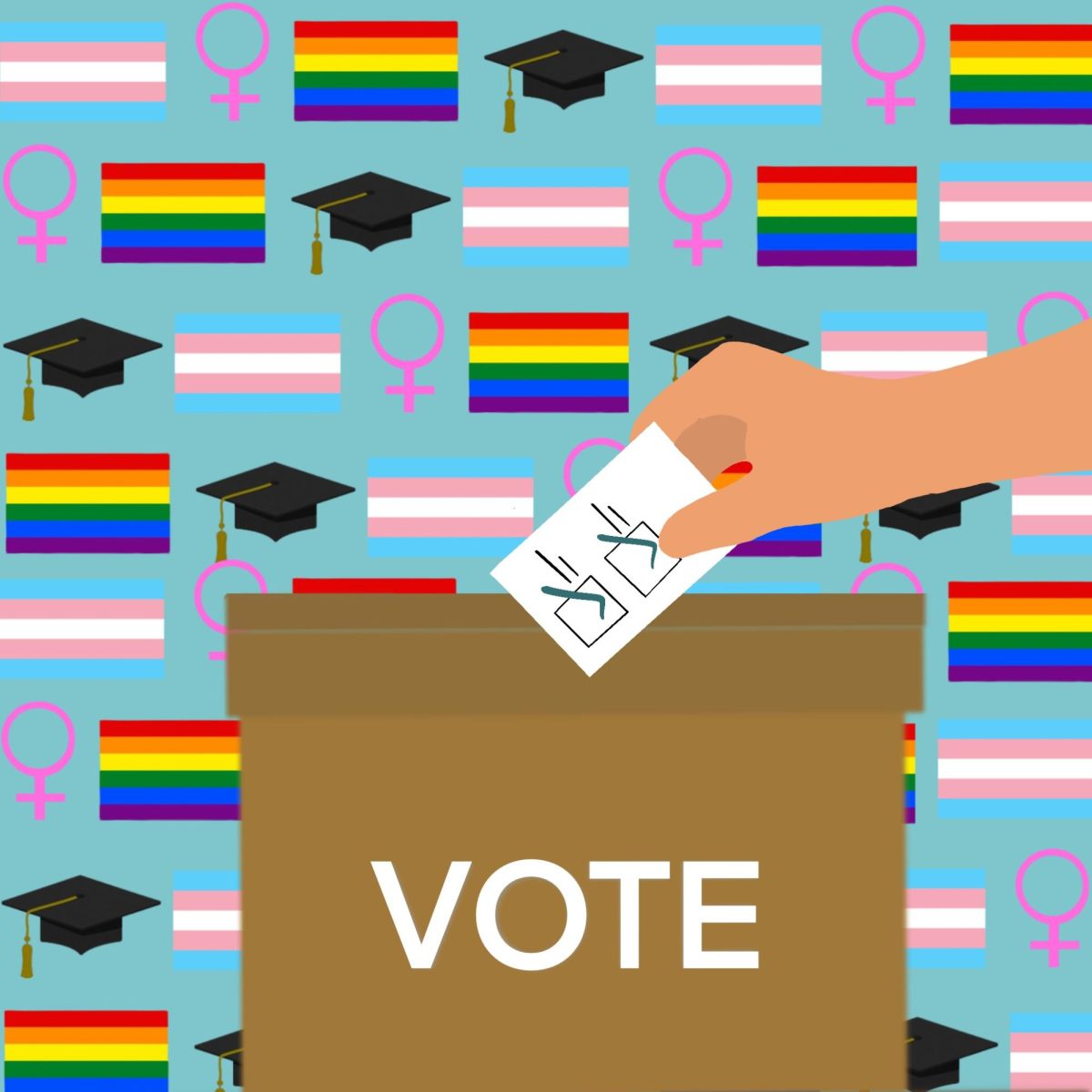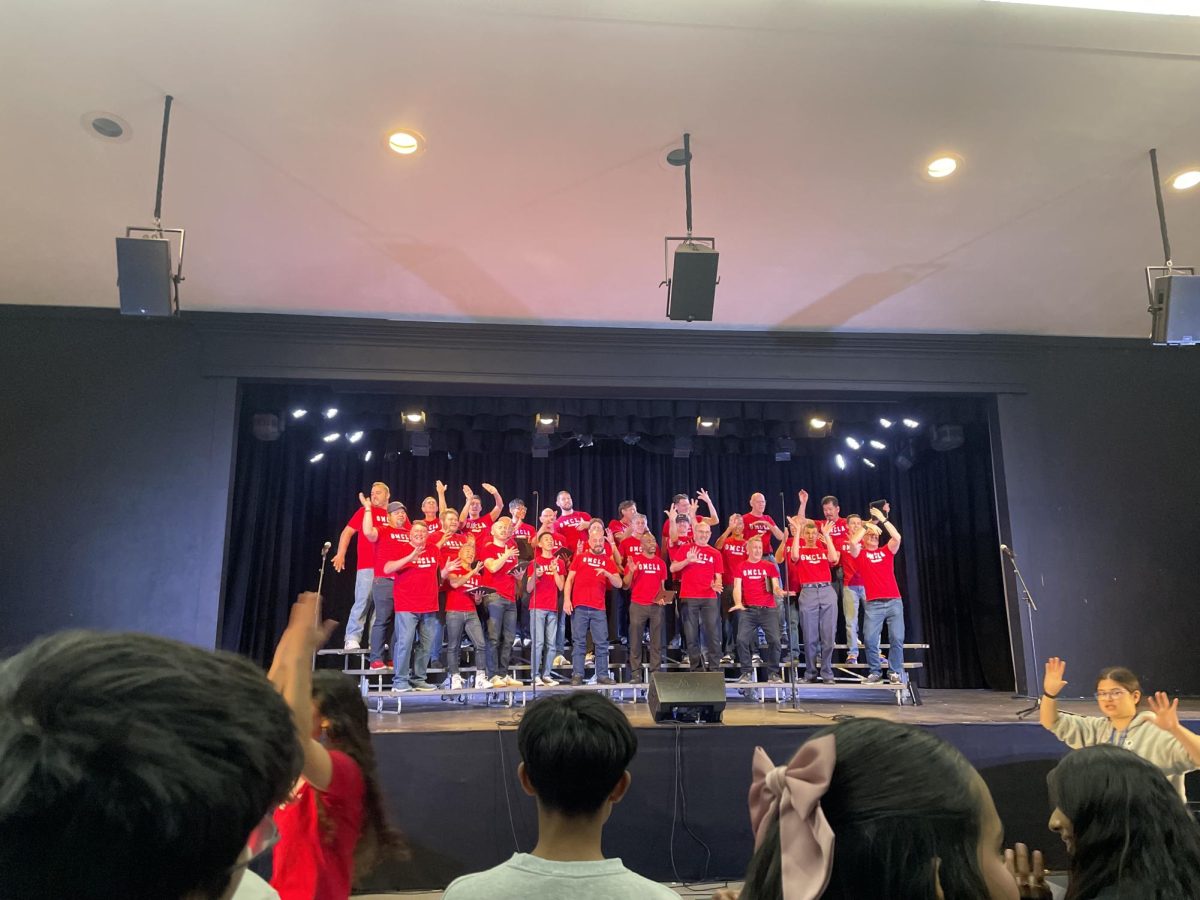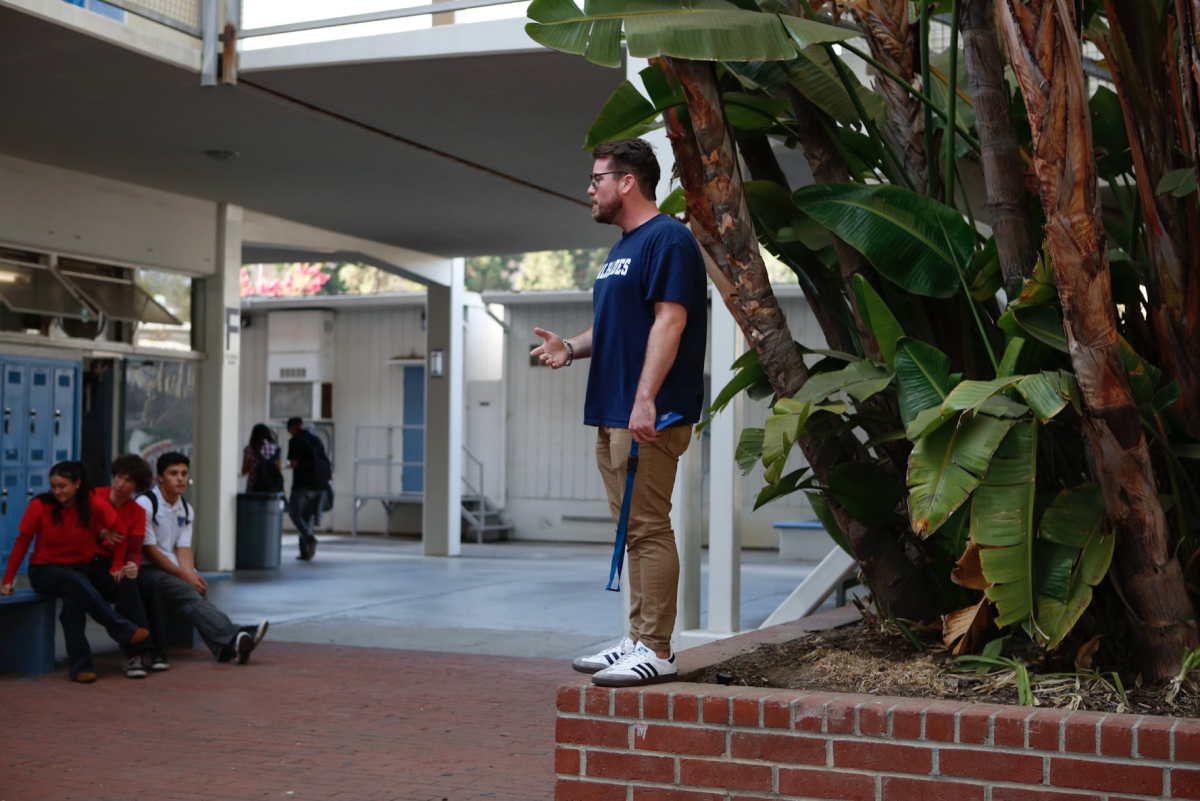Some members of Pali’s diverse campus are quietly expressing concerns that they may be targeted as the Trump administration seeks to deport undocumented immigrants within the president elect’s first few months in office.
Project 2025 also seeks to limit women’s access to abortion and limit the rights of those in the LGBTQ community. In addition, the document details options to use military force if need be.
“Because we go to a really big school, there are so many minorities, women and people of the LGBTQ community who will genuinely be affected by the result,” said senior Dylan Weidling, co-president of the school’s My Body My Choice club.
Many Pali students say that even though they could not cast a ballot, they were greatly interested, if not invested, in the outcome of the recent 2024 Presidential race between President-elect Donald Trump and current Vice President Kamala Harris.
After months of rallies, conventions and campaigning, Trump was elected as the United States’ 47th president, winning both the popular vote and the electoral vote while the Republican Party achieved the majority for both the House of Representatives and the Senate, all amidst continuing to hold power in the Supreme Court. This means that come January, Republicans will control the Legislative, Executive and Judicial branches of government.
During the campaign, Trump publicly disavowed himself from Project 2025, a publication produced by the Heritage Foundation, a prominent right-wing think tank. Still, his recent cabinet nominations have stirred speculation that the president-elect is aligned with some goals outlined in Project 2025.
Junior Viola Browne is among those who expressed fears regarding the potential impact Trump’s policies may have on Pali students.
“One of the most important topics to me was women’s health care and a woman’s right to choose,” Browne said. “It seems that Trump and his cabinet of people really seek to disturb [it].”
She added, “I also worry for my own autonomy and rights, and I’m worried about a new emphasis on women’s roles in society.”
Senior Ethan Mordujovich said that protecting women’s reproductive rights was a critical factor when casting his first ballot.
“I was definitely considering abortion and abortion rights,” he said. “It most directly affects the people I love.”
Looking toward the future, Browne said that she also has concerns regarding how Trump’s presidency will affect climate change.
“We all know [Trump] doesn’t believe in climate change, and I worry about that all the time,” she said.
Mordujovich expressed concern regarding the Trump administration’s views on climate change. “[Trump] either just denies climate change or doesn’t care about it at all,” he said. “I’m scared for the environment.”
Trump’s Project 2025 policies on climate change involve eliminating government interference with energy consumption policies and allowing private companies to “unleash” their energy production.
Pali AP Environmental Science teacher Steve Engelmann spoke on his concerns for the climate and education.
“I think here at Pali there is a big question mark about the campaign,” Engelmann said. “I think there was a conversation about the Department of Education and whether that goes away or not. There is also a lot of talk about the climate, the impacts of climate change and how science will get funded.”
Engelmann believes that it has become easier for those in power to make false claims without any evidence to support the idea.
“I think a lot of people are getting more comfortable with making wild and crazy claims without any evidence to back it up,” he said. “We can look at past administrations, or the first time Trump was president to see how he actually impacted science and education.”
However, Engelmann said he sees students and staff at Pali inspired to take action and urges the community to become more involved in the movement for change.
“I feel a lot more people are putting energy and effort into things they want to see happen,” he explained. “There are specifically students at Pali who are wanting to advocate for human rights, education and the climate.”
Weidling continued to express concerns for public education, and how Trump’s policies on education might impact Pali students.
“Trump wants to cut a lot of funding for students with IEPs and 504s,” she said. “It will be hard for students in public schools and low-income areas who rely on these resources.”
Trump’s future plans for public education will also affect the content being taught in schools, specifically prohibiting any material on race, gender and politics.
AP U.S. History teacher Robert King remembered how Trump’s administration affected Pali families during Trump’s first term.
King explained that “if it plays out like the last time Trump was in office, then there will be a big impact on some particular groups. [Pali] had to develop a campaign for people if their families were being detained for deportation.”
During Trump’s previous presidency, Pali issued cards to students stating, “I do not wish to speak with you, answer your questions, or sign or hand you any documents based on my 5th Amendment rights under the United States Constitution. I do not give you permission to enter my home based on my 4th Amendment rights under the United States Constitution unless you have a warrant to enter, signed by a judge or magistrate with my name on it that you slide under the door. I do not give you permission to search any of my belongings based on my 4th Amendment rights. I choose to exercise my constitutional rights.” These cards were issued to any Pali student or family, citizens and noncitizens alike, who requested one.
AP Government teacher John Rauschuber explained how the results of the election have sparked discussion and controversy on Pali’s campus.
“From strictly a logistic perspective, I think the fact that Harris was able to raise a billion dollars and really made very few errors, if any, was impressive,” he said. “Having to run a campaign in three months is pretty remarkable.”
Trump, the 45th President of the United States, was appointed as the Republican Party candidate for the 2024 election after losing to sitting President Joe Biden in 2020. He was able to hold a primary campaign from January 2024 until June 2024 when he was officially nominated at the Republican National Convention.
However, Harris was not able to stage a complete primary campaign. She was nominated after Biden stepped out of the race in July 2024. Due to his late concession, Harris was unable to receive a proper nomination from the Democratic Party and only had four months to campaign.
Rauschuber explained why he believed that certain groups of people were more attracted to Trump’s campaign.
“Trump is… just not predictable,” he explained. “His ambiguous views in a strategic way work to his advantage. Some people are really attracted to that, especially in foreign policy relationships and the country’s domestic policy.”
The results of the election have been a central topic of discussion on Pali campus. While the Pali population is still fairly diverse in political views, discussions of how the Trump administration will affect the future of the U.S. is a heated subject.
“I definitely see more tension on Pali’s campus than I had in the past,” said Rauschuber. “I think in some ways, tension and conflict can be good. You don’t get change without conflict.”
The impact of the election for those in highly marginalized groups is an important topic to Rauschuber. He says that he does not “want to see the gap between the inequality of wealth in the country expand.”
Despite concerns he has over the present state of the nation, Rauschuber remains optimistic for the future.
“I’m most hopeful in students,” he said. “I see them year after year in my class, engaging and learning. I have hope in the youth.”









